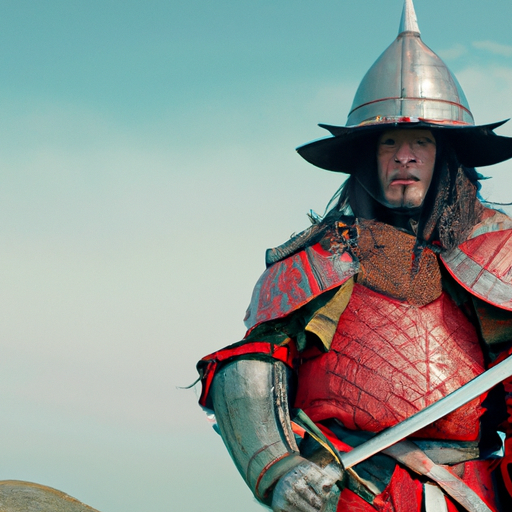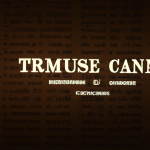The Role of Traditional Chinese Medicine (TCM) in Ancient Military Healing
Warrior Healers: TCM in Ancient Military
In the ancient world, warfare was a constant reality, and soldiers faced numerous physical and mental challenges on the battlefield. Traditional Chinese Medicine (TCM) played a crucial role in healing and supporting these warriors, ensuring their physical and mental well-being. The use of TCM in ancient military healing was not only effective but also deeply rooted in the belief that a healthy body and mind were essential for victory.
One of the key aspects of TCM in ancient military healing was the emphasis on prevention. Soldiers were taught to maintain a balanced lifestyle, including proper nutrition, exercise, and rest. This holistic approach aimed to strengthen the body’s natural defenses and prevent illness or injury. By following these principles, soldiers were able to maintain their physical fitness and mental clarity, enabling them to perform at their best on the battlefield.
In addition to prevention, TCM also offered a wide range of treatments for injuries and illnesses. Herbal medicine played a significant role in ancient military healing, with various herbs and plants used to treat wounds, reduce inflammation, and alleviate pain. These natural remedies were not only effective but also had fewer side effects compared to some of the harsher treatments used in other cultures.
Acupuncture was another essential component of TCM in ancient military healing. This ancient practice involved inserting thin needles into specific points on the body to stimulate energy flow and restore balance. Acupuncture was used to treat a wide range of conditions, including pain, fatigue, and mental distress. By restoring the body’s natural energy flow, soldiers could recover more quickly from injuries and maintain their overall well-being.
Mental health was also a significant concern for ancient warriors, and TCM offered various techniques to address this aspect of their well-being. Meditation and breathing exercises were commonly used to calm the mind, reduce stress, and improve focus. These practices not only helped soldiers cope with the challenges of war but also enhanced their mental resilience and decision-making abilities.
The role of TCM in ancient military healing extended beyond the physical and mental aspects. It also encompassed the spiritual dimension of a warrior’s well-being. Traditional Chinese beliefs held that a strong connection to one’s inner self and the universe was essential for success in battle. Practices such as qigong, a combination of movement, meditation, and breathing exercises, were used to cultivate this connection and enhance a warrior’s spiritual strength.
The effectiveness of TCM in ancient military healing is evident in historical records and accounts. Soldiers who received TCM treatments often recovered more quickly and experienced fewer complications compared to those who relied solely on conventional medicine. Furthermore, the holistic approach of TCM addressed not only the immediate physical needs of the warriors but also their long-term well-being, ensuring their ability to continue serving on the battlefield.
In conclusion, the role of TCM in ancient military healing was vital for maintaining the physical, mental, and spiritual well-being of warriors. By emphasizing prevention, offering effective treatments, and addressing the holistic needs of soldiers, TCM played a crucial role in ensuring their ability to perform at their best on the battlefield. The legacy of TCM in ancient military healing continues to inspire and inform modern approaches to healthcare, highlighting the enduring wisdom of this ancient practice.
The Impact of TCM on the Health and Well-being of Ancient Warriors

Warrior Healers: TCM in Ancient Military
In the ancient world, warriors faced numerous challenges on the battlefield. From physical injuries to mental stress, their well-being was constantly at risk. However, ancient warriors had a secret weapon in their arsenal that helped them maintain their health and vitality – Traditional Chinese Medicine (TCM). The impact of TCM on the health and well-being of ancient warriors cannot be overstated. Let’s explore how this ancient healing system played a crucial role in keeping warriors fit and ready for battle.
One of the key aspects of TCM that benefited ancient warriors was its holistic approach to health. Unlike modern medicine, which often focuses on treating specific symptoms, TCM takes into account the entire body and mind. It recognizes that physical ailments are often interconnected with emotional and mental imbalances. By addressing the root causes of health issues, TCM helped warriors achieve a state of overall well-being.
TCM also emphasized the importance of prevention rather than just treatment. Ancient warriors understood that staying healthy was crucial for their survival on the battlefield. TCM provided them with a range of preventive measures, such as herbal remedies, acupuncture, and dietary guidelines. These practices helped boost their immune systems, improve their stamina, and enhance their mental clarity. By incorporating TCM into their daily routines, warriors were able to maintain optimal health and minimize the risk of falling ill or getting injured.
Injuries were an inevitable part of warfare, and ancient warriors often faced wounds that could be life-threatening. TCM played a vital role in treating these injuries and promoting faster recovery. Herbal medicines, such as ginseng and astragalus, were used to strengthen the body’s healing abilities and reduce inflammation. Acupuncture was also employed to alleviate pain and stimulate the flow of energy, or Qi, throughout the body. By combining these treatments with rest and proper nutrition, TCM helped warriors heal more quickly and return to the battlefield with renewed strength.
Mental health was another area where TCM made a significant impact on ancient warriors. The stress and trauma of battle could take a toll on their mental well-being, leading to anxiety, depression, and post-traumatic stress disorder (PTSD). TCM offered various techniques to address these mental health challenges. Meditation and breathing exercises helped warriors calm their minds and find inner peace. Herbal remedies, such as chamomile and lavender, were used to soothe anxiety and promote better sleep. By incorporating these practices into their daily routines, warriors were able to maintain a balanced state of mind and cope with the psychological demands of warfare.
The impact of TCM on the health and well-being of ancient warriors cannot be underestimated. Its holistic approach, emphasis on prevention, and effective treatment of injuries and mental health issues made it an invaluable tool on the battlefield. TCM not only helped warriors survive the physical challenges of warfare but also supported their mental resilience and overall vitality.
Today, we can still learn from the wisdom of ancient warriors and incorporate TCM into our own lives. By embracing its holistic principles and preventive measures, we can enhance our well-being and achieve a state of optimal health. Whether we face the battles of everyday life or the challenges of a modern battlefield, TCM can be our ally in maintaining our physical and mental strength. Let us honor the warrior healers of the past by embracing the power of TCM in our lives today.


